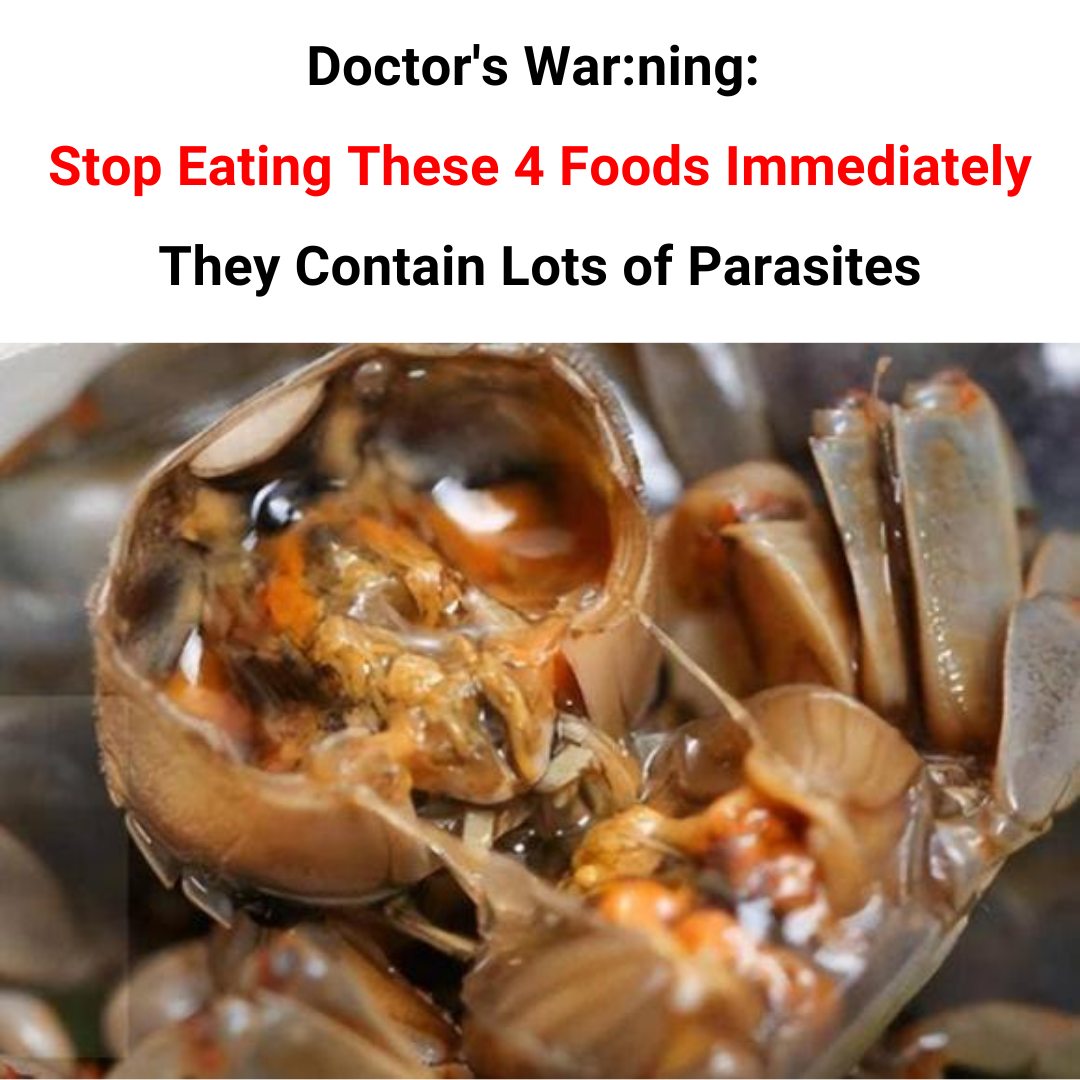ADVERTISEMENT
There Are Many Parasites in the Following Four Foods: What You Need to Know
While food is meant to nourish and sustain our bodies, some foods can carry unwanted visitors in the form of parasites. These microscopic organisms can cause a range of health issues, from mild digestive discomfort to more serious illnesses. In this article, we will discuss four common foods that are known to harbor parasites and how to reduce the risks associated with them.
1. Raw or Undercooked Meat (Especially Pork, Beef, and Fish)
Parasites to Watch Out For:
- Toxoplasma gondii (found in pork, lamb, and beef)
- Trichinella spiralis (found in pork)
- Tapeworms (found in various meats, including beef and pork)
- Anisakis (found in raw or undercooked fish)
Why They Are Risky: Many meats, particularly undercooked pork, beef, and fish, are prone to harboring various types of parasites. Toxoplasma gondii, for example, is a parasite commonly found in raw or undercooked meat from infected animals. Trichinella spiralis, a type of roundworm, is found in undercooked pork and can lead to trichinosis, a serious illness. Tapeworms, which can be found in beef and pork, are another common parasite that can cause digestive issues and malnutrition.
What You Can Do: To avoid parasitic infections, always cook meat to the proper temperature:
- Pork should be cooked to at least 145°F (63°C).
- Beef should be cooked to a minimum of 160°F (71°C).
- Fish should be cooked to 145°F (63°C), or frozen at -4°F (-20°C) for at least 7 days to kill any parasites before consuming raw fish like sushi.
2. Raw Fruits and Vegetables (Especially Leafy Greens)
Parasites to Watch Out For:
- Giardia (found in unwashed vegetables and contaminated water)
- Cyclospora cayetanensis (found in contaminated fruits and vegetables)
- Toxoplasma gondii (found in contaminated produce)
Why They Are Risky: While fruits and vegetables are essential to a healthy diet, they are also common carriers of parasites, particularly if not washed properly. Giardia, a microscopic parasite, can be found in contaminated water and may be transferred to produce that has been irrigated with polluted water. Similarly, Cyclospora cayetanensis can cause intestinal illness and is often linked to contaminated fresh produce such as lettuce, berries, and cilantro.
What You Can Do:
- Wash all fruits and vegetables thoroughly under running water before eating, even if you plan to peel them.
- Consider using a vinegar-water solution or produce wash to reduce any pesticide residues and bacteria.
- Buy organic or pesticide-free produce when possible, as they are less likely to have been exposed to harmful chemicals.
- Peel fruits and vegetables when possible, as the skin can harbor bacteria and parasites.
3. Unpasteurized Dairy Products
Parasites to Watch Out For:
- Toxoplasma gondii (found in unpasteurized milk and cheese)
- Cryptosporidium (found in raw milk and dairy products)
- Brucella (found in raw milk and dairy products)
Why They Are Risky: Unpasteurized dairy products, including milk, cheese, and yogurt, are known to carry several harmful pathogens, including parasites. One of the most concerning is Toxoplasma gondii, which can cause flu-like symptoms, eye issues, and even birth defects in pregnant women. Cryptosporidium, a parasite often found in contaminated milk, can lead to gastrointestinal distress. Brucella, which causes brucellosis, is another parasite found in unpasteurized dairy products.
What You Can Do: To avoid parasitic infections from dairy, always opt for pasteurized dairy products, as the pasteurization process kills harmful bacteria and parasites. If you’re unsure about the origin of a dairy product, it’s always safer to go for the pasteurized option, particularly when traveling to regions where food safety standards may vary.
